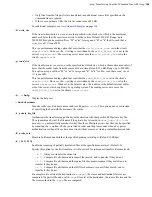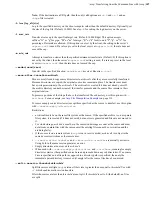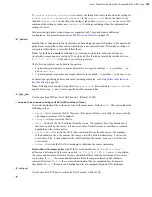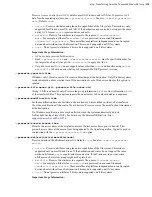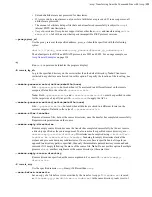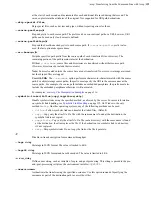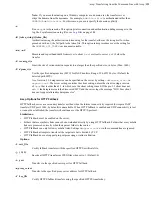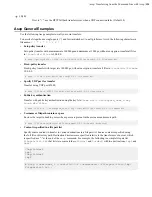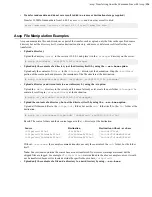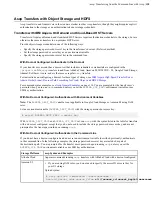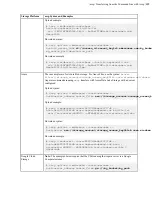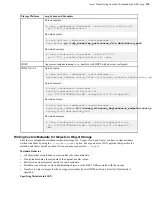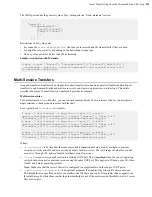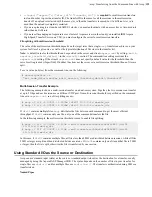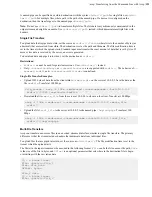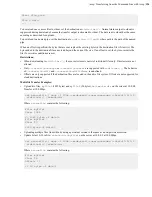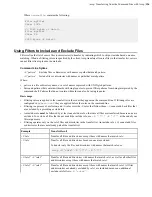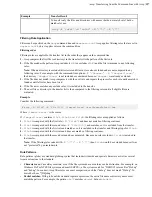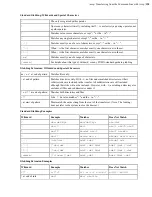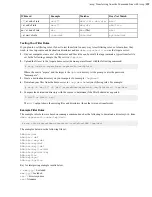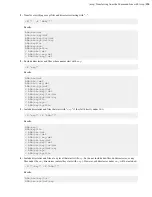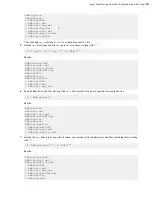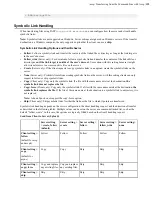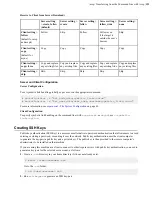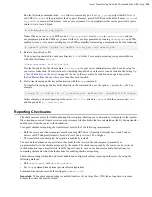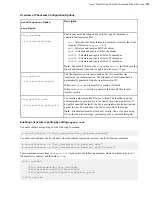
| ascp: Transferring from the Command Line with Ascp |
120
Storage Platform
ascp Syntax and Examples
Upload example:
# ascp --mode=send --user=bear --host=10.0.0.5 bigfile.txt
gs:///2017_transfers/data
Download syntax:
# ascp
options
--mode=recv --user=
username
--
host=
server
gs:///
my_bucket
/
my_path
/
source_file
destination_path
Download example:
# ascp --mode=recv --user=bear --host=10.0.0.5
gs:///2017_transfers/data/bigfile.txt /data
HDFS
Aspera recommends running
ascp
transfers with HDFS with a docroot configured.
IBM COS - S3
Upload syntax:
# ascp
options
--mode=send --user=
username
--
host=
server_address
source_files
s3://
access_id
:
secret_key
@
accessor_endpoint
/
vault_name
Upload example:
# ascp --mode=send --user=bear --
host=s3.asperasoft.com bigfile.txt
s3://3ITI3OIUFEH233:KrcEW...AIuwQ@38.123.76.24/demo2017
Download syntax:
# ascp
options
--mode=send --user=
username
--
host=
server_address
s3://
access_id
:
secret_key
@
accessor_endpoint
/
vault_name
/
source_files
destination_path
Download example:
# ascp --mode=send --user=bear --host=s3.asperasoft.com
s3://3ITI3OIUFEH233:KrcEW...AIuwQ@38.123.76.24/demo2017 /
tmp/
Writing Custom Metadata for Objects in Object Storage
Files that are uploaded to metadata-compatible storage (S3, Google Cloud, and Azure) can have custom metadata
written with them by using the
--tags
or
--tags64
option. The argument is a JSON payload that specifies the
metadata and that is base64 encoded if it is used as an argument for
--tags64
.
Metadata Behavior
• All objects that are uploaded in a session have the same metadata.
• If an upload resumes, the metadata of the original transfer is used.
• Multi-session transfers must specify the same metadata.
• Metadata are not retrieved when downloading objects; use the REST API associated with the storage.
• Transfers to object storages that do not support metadata (such as HDFS and Azure Files) fail if metadata is
specified.
Specifying Metadata in JSON

